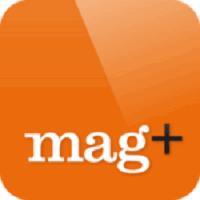Description

Frontegg

Mag+ Application Development

Shipbook
Comprehensive Overview: Frontegg vs Mag+ Application Development vs Shipbook
To provide a comprehensive overview of Frontegg, Mag+ Application Development, and Shipbook, let's explore each product individually:
Frontegg
a) Primary Functions and Target Markets
- Primary Functions: Frontegg is a SaaS-based user management and authentication platform. It provides tools for authentication (including multi-factor authentication), SSO, API token management, and more, essentially operating as an authentication-as-a-service platform. Frontegg aims to simplify the deployment of secure, scalable user identity management infrastructure across web applications.
- Target Markets: Primarily targets small to medium-sized businesses, startups, and developers that require robust user management features but want to avoid the complexities and costs of building an in-house solution. It's particularly beneficial for B2B SaaS platforms needing to handle intricate authentication processes securely.
b) Market Share and User Base
- Market Share: Frontegg is part of the broader IAM (Identity and Access Management) market, which includes many competing solutions. Its focus on being developer-friendly gives it a niche but growing presence in that market, though overall it doesn't match the market share of older and more established players.
- User Base: Frontegg has a growing user base, especially within tech-savvy startups and the developer community looking for quick integration solutions. Exact user numbers are typically proprietary data, so specifics on their user base compared to competitors are less readily available.
c) Key Differentiating Factors
- Developer-friendly APIs that allow seamless integration.
- Focus on reducing the time-to-market for applications requiring complex user authentication and management.
- Scalability and flexibility that cater to rapidly growing businesses and SaaS applications.
Mag+ Application Development
a) Primary Functions and Target Markets
- Primary Functions: Mag+ is a digital publishing platform and app development tool that enables users to create, publish, and manage content-rich apps for mobile devices, primarily focusing on digital magazines and catalogs. It leverages a drag-and-drop interface for easy app design without needing extensive programming knowledge.
- Target Markets: Mag+ primarily targets publishers, content creators, and marketing teams looking to deliver interactive and media-rich content to mobile users. This includes magazine publishers, catalog creators, and marketing teams looking to develop apps.
b) Market Share and User Base
- Market Share: While it has been influential among digital publishers, Mag+ competes in a crowded market with various digital content creation and app development tools. Its niche focus slightly limits its overall market share.
- User Base: Its user base primarily consists of publishers and marketing teams who value its ease of use and specialization in media content. The user base's size is also part of proprietary company information, but its niche application suggests a dedicated, possibly smaller community relative to all-purpose app development tools.
c) Key Differentiating Factors
- Simplicity and ease of use with a focus on non-developers.
- Specialization in digital magazine and catalog app creation.
- Drag-and-drop interface allows rapid prototyping and deployment.
Shipbook
a) Primary Functions and Target Markets
- Primary Functions: Shipbook offers an integrated logging service aimed at mobile apps, providing real-time insights and analysis of log data during the development and production stages. This enables developers to monitor, troubleshoot, and improve app performance through logs.
- Target Markets: Targets mobile app developers and development teams, particularly those involved in the ongoing maintenance and improvement of mobile applications.
b) Market Share and User Base
- Market Share: Shipbook operates in the mobile app development tools market, providing a niche service within the logging and monitoring segment. It faces competition from other logging and monitoring solutions, but its specific focus on mobile makes it specialized.
- User Base: Likely to have a focused and defined user base of mobile developers seeking efficient logging solutions tailored for mobile app environments.
c) Key Differentiating Factors
- Specialization in mobile app logging and monitoring.
- Provides real-time log analysis which is critical for maintaining mobile app quality and performance.
- Specific features tailored to mobile app needs, potentially offering deeper insights than more general-purpose logging solutions.
Summary
- Frontegg shines with its developer-focused IAM offerings, catering especially to fast-paced SaaS markets.
- Mag+ distinguishes itself in the digital publishing space with its ease of use interface intended for content creators and publishers, emphasizing media-rich apps.
- Shipbook stands out in mobile development with its focus on logging, offering tailored solutions for real-time app insight.
Each product serves different niches and industries, with Frontegg focusing on user management, Mag+ on digital content creation, and Shipbook on mobile application monitoring, making direct comparisons of market share challenging without specific intelligence from their respective sectors.
Contact Info

Year founded :
2019
+1 234-567-8992
Not Available
United States
http://www.linkedin.com/company/frontegg

Year founded :
Not Available
Not Available
Not Available
Not Available
Not Available

Year founded :
2018
Not Available
Not Available
Israel
http://www.linkedin.com/company/shipbook
Feature Similarity Breakdown: Frontegg, Mag+ Application Development, Shipbook
To provide a feature similarity breakdown for Frontegg, Mag+ Application Development, and Shipbook, we first need to understand each product's main functionalities:
-
Frontegg: Frontegg is a platform designed for B2B SaaS applications that provides a complete user management ecosystem. It includes features such as authentication, user management, and various tools to aid developer enablement and enhance product security.
-
Mag+ Application Development: Mag+ is a digital publishing platform primarily focused on digital magazine creation. It offers tools for creating, designing, and distributing digital content, particularly for tablets and smartphones.
-
Shipbook: Shipbook is a centralized logging and crash reporting tool for mobile applications. It focuses on providing developers with detailed logs and crash reports to help them troubleshoot issues efficiently.
a) Core Features in Common
-
User Management: Frontegg and Mag+ both offer some level of user management system, though Frontegg's is more comprehensive and tailored towards authentication and admin experiences, while Mag+'s is oriented towards content access and distribution.
-
Developer Tools: Frontegg provides tools to manage SaaS applications, while Shipbook offers debugging and logging facilities. Both cater to developers, though in different capacities.
b) User Interface Comparison
-
Frontegg: The UI is developer-focused, featuring dashboards for authentication, user activity, and configuration settings. It's designed to be integrated into SaaS platforms, offering a seamless experience between the Frontegg console and the client's existing user interfaces.
-
Mag+ Application Development: Mag+ provides a design tool-oriented interface, allowing users to create and edit digital publications. The UI is more creative and laid out like a digital canvas with a drag-and-drop feature, catering primarily to content creators rather than typical developers.
-
Shipbook: The UI is analytics and log-focused, designed to present crash reports and logs in a detailed but comprehensible manner for debugging purposes. It features interactive graphical elements that make it easier for developers to pinpoint issues in application code.
c) Unique Features
-
Frontegg: Unique in its comprehensive user authentication and management system aimed at SaaS B2B applications. It excels in providing multifactor authentication, single sign-on, and user roles and permissions out of the box.
-
Mag+ Application Development: This platform stands out for its focus on digital content creation and distribution. It offers a complete suite for publishing and distributing multimedia content on assorted platforms, which is not a focus of the other two.
-
Shipbook: Notably unique in its advanced logging and crash reporting capabilities. It focuses heavily on mobile applications, providing easy implementation and insightful, real-time analytics for troubleshooting and performance optimization.
In summary, while Frontegg, Mag+ Application Development, and Shipbook may have overlapping features such as user management and developer tools, each platform carves a niche by addressing specific needs: SaaS user management, digital content creation, and mobile application debugging respectively. Their UIs reflect these focuses, with Frontegg and Shipbook favoring developer-oriented designs and Mag+ catering to content creators.
Features

Not Available

Not Available

Not Available
Best Fit Use Cases: Frontegg, Mag+ Application Development, Shipbook
Certainly! Each of these tools—Frontegg, Mag+ Application Development, and Shipbook—caters to specific use cases and has unique strengths that make them suitable for different types of businesses and projects. Here's a breakdown of their best fit scenarios:
a) Frontegg
Use Cases:
- Business Applications and SaaS: Frontegg is ideal for businesses developing SaaS applications that require robust user management features. It provides capabilities such as authentication, user permissions, and multi-tenancy.
- Startups and Scaling Enterprises: It's a great choice for startups and growing companies that want to quickly implement secure user management without building it from scratch. Its scalable capabilities are well-suited for businesses anticipating rapid growth.
- Applications with Complex User Roles: Businesses needing complex user roles and permissions, such as those in the enterprise software market, can leverage Frontegg’s feature-rich identity and access management.
Industry/Company Size:
- Frontegg is versatile across various industries such as SaaS, fintech, and healthcare. It's particularly beneficial for small to medium-sized enterprises and startups that need turnkey user management solutions.
b) Mag+ Application Development
Use Cases:
- Mobile Publishing and Design-Driven Apps: Mag+ excels in scenarios where visual presentation and rich media content are critical. It's a preferred option for creating interactive digital publications and magazines.
- Creative Industries: Ideal for media, publishing, and creative industries that require visually compelling applications with a focus on content like e-books, catalogs, or corporate communication tools.
- Rapid Prototyping for Mobile Apps: For companies needing to prototype and iterate on mobile app designs quickly, Mag+ provides a platform that allows for seamless experimentation with design layouts and interactivity.
Industry/Company Size:
- Mag+ is particularly suited for small to medium-sized businesses in the publishing, media, and marketing sectors. It also caters to larger enterprises with a focus on branded content distribution.
c) Shipbook
Use Cases:
- Mobile Application Debugging and Logging: Shipbook is suited for developers needing comprehensive logging solutions for mobile applications. It provides deep insights into application logs directly from the client-side.
- Apps Requiring Extensive QA and Debugging: Ideal for projects where substantial quality assurance and debugging are necessary, especially for complex or large-scale mobile applications.
- Companies Focused on User Experience: Businesses prioritizing user experience and customer feedback loops can use Shipbook to identify and fix issues swiftly.
Industry/Company Size:
- Shipbook is beneficial for software development companies, startups, and enterprises involved in mobile app development across various verticals. Its advanced logging features cater well to technical teams in any industry focusing on mobile technology.
d) Industry Verticals and Company Sizes
-
Frontegg primarily serves industries that require strong security and user management, regardless of size, but it's notably attractive to smaller companies and startups looking to outsource user management complexities.
-
Mag+ is targeted at creative sectors where the visual content is of the essence, fitting well into small publishing firms or large enterprises looking for innovative content presentation solutions.
-
Shipbook appeals broadly to any company involved in mobile app development. Its logging service is particularly beneficial for mid-to-large sized companies aiming to maintain high app performance and quality.
In conclusion, the choice between Frontegg, Mag+, and Shipbook should be guided by the specific needs of your project and the nature of your industry. Frontegg is ideal for SaaS and security-focused businesses, Mag+ for content-rich and design-centric apps, and Shipbook for those needing a comprehensive logging solution for mobile applications.
Pricing

Pricing Not Available

Pricing Not Available

Pricing Not Available
Metrics History
Metrics History
Comparing teamSize across companies
Conclusion & Final Verdict: Frontegg vs Mag+ Application Development vs Shipbook
Conclusion and Final Verdict
a) Best Overall Value
To determine which product offers the best overall value among Frontegg, Mag+ Application Development, and Shipbook, we need to consider factors such as features, ease of use, scalability, cost, customer support, and integration capabilities.
-
Frontegg is ideal for those looking to quickly integrate user management features, security protocols, and SaaS operations into their applications. It offers robust features that are crucial for SaaS developers, such as authentication, SSO, and multi-tenancy, making it a great choice for startups and growing tech companies.
-
Mag+ Application Development focuses on content creators looking to create and manage engaging digital content, especially for mobile applications. It is particularly valuable for publishers and organizations that prioritize design and content layout.
-
Shipbook excels in providing comprehensive mobile log management, focusing on troubleshooting and monitoring. It's a valuable tool for mobile app developers who need detailed logs and analytics to resolve issues efficiently.
Best Overall Value: The best overall value depends on the specific needs of the user. For SaaS platforms needing user management, Frontegg provides the most value. For content-focused applications, Mag+ stands out. For mobile development requiring detailed troubleshooting, Shipbook is invaluable.
b) Pros and Cons of Each Product
Frontegg:
-
Pros:
- Comprehensive user management features
- Excellent security protocols
- Fast API integration
- Supports multi-tenancy
- Scalable for growing companies
-
Cons:
- May have a steeper learning curve for developers unfamiliar with SaaS frameworks
- Could be an overkill for simple applications that don't require complex user management
Mag+ Application Development:
-
Pros:
- User-friendly interface for creating rich content
- Strong focus on design and customizable layouts
- Effective for digital publishing and media-rich applications
- Provides a comprehensive digital publishing toolset
-
Cons:
- Limited to content-rich applications, not suitable for broader application functionalities
- Pricing might not justify for non-design focused projects
Shipbook:
-
Pros:
- Offers deep insights through detailed logging
- Helps in efficient troubleshooting and app monitoring
- User-friendly dashboard for analyzing logs
- Provides data security and privacy for logs
-
Cons:
- Mainly focused on mobile applications, not versatile for other types of app development
- Developers may need to integrate other tools for full analytics beyond logs
c) Specific Recommendations
-
For SaaS Applications: Choose Frontegg if your application requires robust user management and security features. It is particularly suited for companies in the SaaS space aiming for scalability and secure user management.
-
For Content-Centric Applications: Consider Mag+ Application Development if your primary focus is on creating visually appealing and interactive digital content. It is ideal for publishers and businesses heavily involved in digital publishing.
-
For Mobile Applications Needing Detailed Logging: Opt for Shipbook if your mobile applications require extensive logging for troubleshooting. It is highly beneficial for mobile developers who prioritize efficient debugging and error monitoring.
Users should assess their specific needs, considering the product's strengths and applications, and choose accordingly to ensure they get the best value for their particular use case.